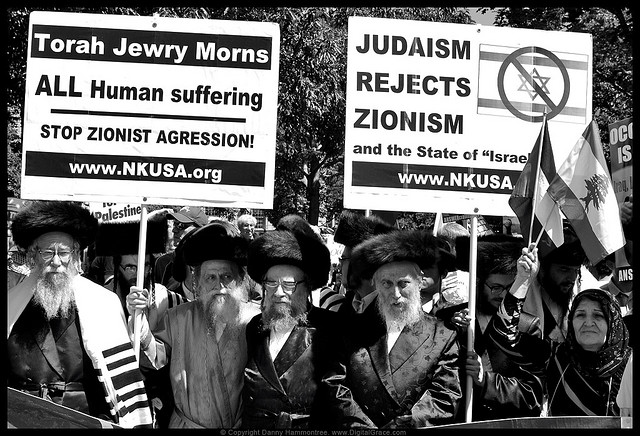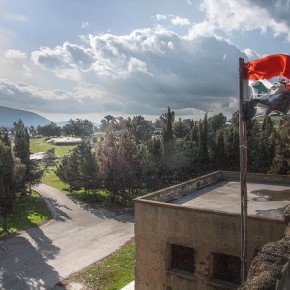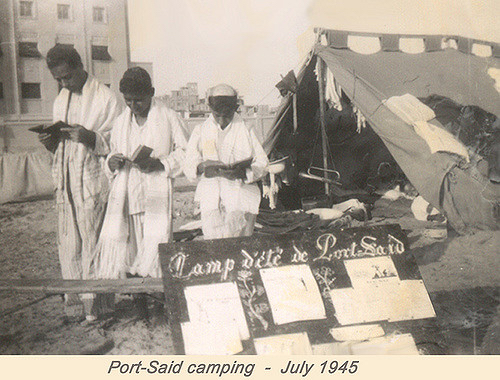The two-state solution is a victim of political murder. We may not all agree on who the perpetrator is. But the fact that the peace process is now a relic of history is increasingly impossible to deny.
The thought has obviously occurred to Israeli novelist A.B. Yehoshua, a prominent figure in both Israeli literature and liberal Zionist punditry. In an op-ed in Ha’aretz last week, Yehoshua said that Israelis would have to prepare for the possibility that the two-state solution is dead, and that they must consider how to deal with the possibility of a bi-national state shared with the Palestinians.
Yehoshua’s piece was laden with elitist and colonialist overtones. The Alternative Information Center’s Michael Warschawski exquisitely demystifies them, for all their symptomatic hubris. We now need to consider the same reality that Yehoshua so reluctantly confronted.
Many Jewish progressives, myself included, have long contended that two states was the best way to resolve the open conflict between Israel and the Palestinians. Fewer among us agreed that in order to do that, we needed to confront the settlement issue in its entirety, including its entrenchment in Israeli politics and its economy. We similarly failed to grasp that a viable two-state solution required both the full integration of Israel into the community of Middle Eastern countries, as well as a solution to the Palestinian refugee crisis that paid respect to the importance of that issue to the Palestinian people.
Two-staters who understood these issues as base-level requirements were always in the minority. But we’re beyond such questions now, as the Netanyahu government has finally made it clear that the two-state solution is not a vision Israel has any interest in making a reality. So, what does a viable alternative look like?
The simplest way to achieve a one-state solution is to leave everything as it is on the ground and grant citizenship to the Palestinians currently under occupation. Doing so raises some very serious questions, however. One can start with Gaza, and whether or not it would be included in such an arrangement.
However, a bigger issue is whether granting citizenship to the Palestinians will accomplish anything except magnify existing tensions. Current citizens, overwhelmingly Jewish, will control almost all of the economy and most of the political system as well. The religious settlers will also want to redouble their efforts to expand the Jewish presence on the West Bank.
These issues stand in stark contrast to Yehoshua’s contention that “… a binational state, even one that is half-democratic, could promise Palestinians a better and safer life, and (most importantly) a larger territorial area, than what might be wrought by dozens of years of a campaign conducted with the declared goal of obtaining all of Palestine.”
More likely, the Palestinians would continue to face many of the same problems today, in different forms. Racial profiling would replace the checkpoints, Jewish settlement would continue in the West Bank with zoning laws little different from what is in place in Jerusalem and around Arab towns within Israel. The Knesset would have more Arab members, to be sure, but that is no guarantee of political equality, either.
On a human level, the years of conflict would not disappear. Israeli Jews would continue to fear Arabs. Added to that would be the resentment that comes from the perception of having lost the “Jewish state.” Palestinians would also continue to harbor resentments from years of occupation and disenfranchisement, in addition to ongoing discrimination and the continued presence of radicals determined to further transform Israel according to their own vision. Such groups are a small minority among Palestinians, but they would feature prominently in Jewish perception, and quite likely the global view of the new country as well, especially if they engaged in violence, as some likely would.
But, if a single state remains a poor option, and the two-state solution is dead, what are the alternatives?
At the moment, options are few. If disappointed two-staters like myself want to find alternatives to either supporting a plan that is no longer possible, or a vision that we believe will lead to an even worse reality than what we have now, we have to start creating the conditions for something new to emerge.
The greatest mistake mainstream two-staters made was buying into the formulation, popularized by the late Israeli Prime Minister Yitzhak Rabin, of “us here and them there.” That framework made separation the very definition of the two state solution, and thoroughly marginalized two-staters who believed that the two states must be independent, but also interdependent (including an open border) in order for it to lead to a real and sustainable solution. There’s no more room for separation.
The death of the two-state solution doesn’t convince me that binationalism, or the “single, secular state” ideas are any more viable than they were before. Indeed, the collapse of the two-state framework only seems to throw the problems with those alternatives into sharper relief. The animosity, increasing harshness of both the occupation and the siege on Gaza, the rightward shift in Israel, the increasing hopelessness in Palestine, the quisling behavior of the PA and the pointless confrontationalism of Hamas… All of these conditions make the old ideas moot, however many states they might incorporate.
However, by reversing the separation trend, by bringing Israelis and Palestinians together, new options can open up; options that we cannot necessarily visualize today.
It starts with the Separation Barrier. That wall — which has done far less than enhanced PA security and an increased belief among Palestinians that violence will never secure their freedom to end attacks on Israeli civilians from the West Bank — is the symbol of the old failures. Bringing it down and restoring, even enhancing, contact between regular Israelis and Palestinians would create a new atmosphere.
That atmosphere not only humanizes Israelis and Palestinians to each other. Of far greater importance, the intimacy it confers opens up opportunities for collaboration in the political, economic and cultural realms. If these are encouraged not only by Israeli and Palestinian civil society but also by external actors at the UN, in the US, in the Arab world and Europe, the basis for a new political vision would be created.
The legendary Israeli peace group, Gush Shalom, once popularized an image of the Israeli and Palestinian flags, crossed, with the phrase “Two peoples, one future” underneath. That is the vision that has to replace “Us here and them there.”
If we can start to do that, we might be able to find a better solution than the failed idea of two states, and the dubious current crop of one-state options. And we’d better do it soon.
The right wing is already producing its post-two-state vision, coming up with new distortion points to entrench an apartheid system, while making sure no one can get away with calling it that. Republican presidential candidate Rick Santorum echoed that vision when he said, ” All the people who live in the West Bank are Israelis. There are no Palestinians. This is Israeli land.”
Predictably, progressives are much slower and more timid than their opponents. That’s how we lost the two-state solution. Let’s not make the same mistake again.
Photograph courtesy of Danny Hammontree. Published under a Creative Commons license.






I laud your efforts and agree with you most of the time but here you are flatly wrong. The one state solution (sans Gaza) is the only pragmatic solution at this point and a much better than Palestinian Bantustans, which is the best case scenario in your approach – something which will fail and will be disastrous to all.
If blacks can live peacefully with their former slave owners / Apartheid Whites and children of Inca can live with the conquistadors, there is no reason that Jews cannot live as equals with their former serfs/victims. Grievances tend to disappear when there is equality. Even Arab Israelis didn’t turn into homicidal maniacs despite decades of abuse, deportations and segregation, if you are familiar with Israel’s military rule of its Arab citizens 1948-1966.
The bi-national state already exists, according to your definition, even excluding the West Bank. The invented idea of “two nations”, especially Jewish Nationalism (Zionism), which is the source of the conflict, will have to disappear and give way to a new forged identity just like it was done elsewhere in the world when immigrants merged with the natives into one nation.
It worked everywhere in the world – they will just have to give up the silly notion of “Jewish nation” – a reduntant invented extra-territorial entity that has nothing in common and nothing uniting it except for continued conflict. If not, you are choosing eternal conflict, until the predictable end of the Jewish Crusader State.
Ahad Haddam (great pseudonym, by the way), I think we disagree on some things, but you’re misreading me on others. My scenario is precisely one that is not Palestinian Bantustans. Nor am I suggesting that Palestinians would become “homicidal maniacs.” Indeed, I am saying that citizenship will not and does not suddenly change the status quo.
Nations do not simply disappear. Like it or not, Zionism created a nation out of a disparate religious group. Nationalism also created a Palestinian nation. Thrusting them into a single state will not make either nation, or any of the ideologies among them, disappear. They can, conceivably, be kept from killing each other–it worked in Yugoslavia, Iraq, the Soviet Union– all at the point of a gun, and when that gun was removed, sectarian violence immediately resumed. Many more examples can be found close by, in Lebanon, for instance, or farther away in Central Africa.
As you yourself point out, the single state does exist, and I contend that making it official will only encode apartheid, not eliminate it.
The point I’m making is that I believe that will be the result of a single state created in current conditions. So, we need to change the conditions. Bringing Israelis and Palestinians into greater contact, especially in economic fora, will change those conditions. That will lead to the possibility of formulating a state (or states, whatever–I’ve never cared about whether it was one state, two states, a million states or no states, I only care about what will work to resolve the situation, and, in my view, that was once two states with open borders and interdependent economies, but that is now moot)which respects both the existing nationalisms, but also does not give one power over the other. Creating a single official state now will, I believe, lead to more violence and greater apartheid.
But the notion that nations have somehow disappeared in the face of some mythical “equality” (and where, pray tell, does that exist?)is simply untrue on its face. Personally, I’d be delighted to see the entire concept of nationhood done away with. Religion too. In the real world, that is not a possibility, however. Nations sometimes evolve into new nations, sometimes merge, but these are processes that take many generations. They don’t just disappear. There is no solution in trying to make that happen. It’s tilting at windmills.
I don’t see why you claim that giving Palestinians equal rights will lead to violence. It was done before in Israel with Israeli Arabs in 1966 and lo and behold, the earth did not implode.
I did not claim that all the problems or discrimination will disappear overnight but removing the military rule and giving Palestinians civic rights (such as property rights, a right to a lawyer and fair trial – which they currently don’t have) is the first step that can be easily implemented like it was done in 1966. Keeping the existing situation for another 20 years while the wise men contemplate an innovative solution should not be an option. Of course Israelis are not in a hurry and wouldn’t mind if the negotiations continue for another century because they are not the ones who live in ever shrinking enclaves behind walls and fences and have to go through checkpoints to visit their cousins in the neighboring village.
If after they have equality both “nations” decide they want to part ways, they should negotiate that as equals, not as Pharaoh negotiated with Moses, which is the current “peace process negotiations” (although I doubt they will, Jews and non-Jews live all over historic Palestine and are quite complementary, once you remove the legalized superiority of one over the other).
But the idea of “two nations” is something I disagree with. It is just a reflection of the Zionist ruling minority’s creed of separation between what they consider Jew and non-Jew, whereas in fact Israel is made up of many communities, some of them having more in common with Palestinians than with Ashkenazi Jews.
I don’t believe anyone expressed it better than Israel Shamir in his brilliant essay A Tale of Two States
http://www.israelshamir.net/English/Tale_of_Two_States.htm
Well, citing a racist like Israel Shamir pretty much zeroes out your credibility.
See here http://azvsas.blogspot.com/2010/12/wikileaks-their-fascist-representative.html an archive of exposes of the racist Shamir, his ultra-right-wing alliances and other misdeeds, froma range of writers, virtually all of whom are anti-Zionist, including Ali Abunimah.
http://azvsas.blogspot.com/2010/12/wikileaks-their-fascist-representative.html
I am Jewish and anti-Zionist myself so calling someone anti-Zionist does not discredit him. I will not go to lengths of defending Israel Shamir, but it is obvious you never read anything he wrote or said, since racist and fascist is the last thing you could say about him. What you are quoting is just a smear campaign against him, which is the typical ad hominem attack on anybody the Zionists do not agree with, including Jimmy Carter, Desmond Tutu, Cynthia McKinney, Amnesty International and many many other good people and organizations.
I’ve actually read quite a lot of Shamir’s vile racism, as well as his more shady pseudo-pro-peace-and-justice writings. I’ve also met and spoken with him. But I’ll be happy to let Ali Abunimah and the legions of other anti-Zionist activists (which, it is true, I am not, and neither am I a Zionist, and most Zionists consider me anti-Zionist, even if I don’t) who have recognized with ease the hate in Shamir’s work and publicly denounced him, that he and they are all really Zionist shills. I’m sure Ali will be surprised to hear it. And with that, I’ll end my discussion with you.
MP: “the Netanyahu government has finally made it clear that the two-state solution is not a vision Israel has any interest in making a reality. So, what does a viable alternative look like?
The simplest way to achieve a one-state solution is to leave everything as it is on the ground and grant citizenship to the Palestinians currently under occupation”
I write as a long-time proponent of full Israeli withdrawal to its pre-1967 territory. But looking at what you’ve said (and I quoted above), I disagree with you as to what is (for hard-line Israel) the “simplest way to achieve a one-state solution.” What’s easiest and simplest is to maintain the status quo, with ever-increasing oppression and no vote or other democratic rights (or human rights generally) for non-Jews.
N’yahu and his ilk have no more interest in granting the vote to WB Palestinians than they do in rolling back the entire occupation or allowing return of all the 1947-50 Palestinian refugees to pre-1967 Israeli territory. For them (and it is THEY who count, being that it was THEY who made 2SS more-or-less impossible (and definitely impossible if considered merely from the viewpoint of what Israel itself will do)) the easiest thing to do is to carry on carrying on.
Peter, I wasn’t suggesting this was something Bibi and cohorts wanted to do. We agree, of course, that they have zero interest and 100% opposition to granting the vote to West Bank Palestinians. Rather, the question was regarding the available one-state frameworks from the honest advocates of such a solution, who see it as the way to resolve the crisis with justice and in peace. There is a wide variety of types of one-state propositions, but the simplest and most basic one is the simple granting of the vote to Palestinians.
Bottom line, what you say here is not disagreeing with me, but is in complete agreement, at least on that one point. Or, conversely, I am in complete agreement with you in what you say.
Indeed, what you articulate is very much the sort of one-state solution that Bibi seems to envision and is currently being advocated (though they don’t admit it outright) by the likes of Newt and Santorum, a point I made in this article and a previous one.
You write: “…new distortion points to entrench an apartheid system, while making sure no one can get away with calling it that.”
a) what points?
b) is not “Palestine” intended to be an apartheid state – no Jews?